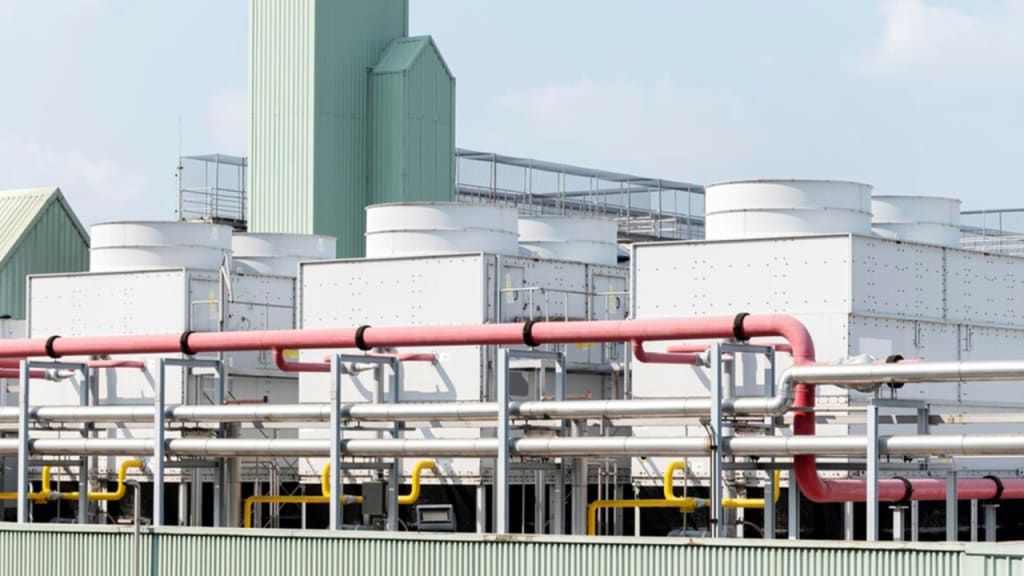Large Heat Exchanger Repair Issues and Solutions in the Industrial Sectors!
Heat Exchanger Repair

Heat exchangers play a crucial role in a wide variety of industrial processes by facilitating the managed and efficient transfer of heat from one fluid to another. Heat exchangers, however, are mechanical systems and are subject to wear and tear, requiring maintenance and eventual replacement.
Repairing large-scale industrial heat exchangers can be challenging due to various factors such as limited access, corrosion, and weight restrictions. These problems, however, can be overcome with the correct method to ensure that heat exchangers are returned to ideal working conditions.
In this blog post, we will examine the numerous issues that might emerge during heat exchanger repair in NJ and possible solutions to overcome these challenges.
Various challenges can arise when attempting to repair large-scale industrial heat exchangers, such as:
Accessibility
Accessibility is an important consideration when designing and installing a heat exchanger. The location and size of the unit can affect the ease with which it can be accessed for inspections and repairs.
For example, heat exchangers in tight spaces or hard-to-reach areas may be more difficult to access, while larger units may necessitate more space for maintenance people to maneuver around. Some heat exchangers are constructed with removable or hinged covers or modular construction to facilitate accessibility and allow for easy access to interior components.
Corrosion
Corrosion is a natural process that occurs when metal is exposed to an environment that contains oxygen and moisture. These conditions can cause the metal to break down, weakening the structural integrity of the heat exchanger and potentially leading to leaks or failure.
Industrial heat exchangers are commonly exposed to adverse environmental conditions such as high temperatures, chemicals, and hostile gases, all of which can hasten the corrosion process. Therefore, heat exchangers are often made of corrosion-resistant materials, such as stainless steel or titanium, and may be coated with specific coatings or treated with corrosion inhibitors to prevent corrosion.
Leakage
One potential issue that can occur with heat exchangers is leakage, which can occur due to a variety of causes, such as corrosion, mechanical damage, or improper installation. Leakage can be difficult to detect, as it may occur in small amounts and in hard-to-reach areas of the exchanger, and it may not always be immediately visible.
It is crucial to find and fix leaks as quickly as possible since they might lead to harm to other components of the system and environmental problems. Routine checks and maintenance are essential for detecting leaks in heat exchangers, and monitoring equipment like ultrasonic leak detectors can also help.
Cost
Yes, repairing a large-scale industrial heat exchanger can be costly. The cost will depend on the specific situation, but it can include the cost of labor and materials and the potential loss of production while the unit is being repaired.
The cost of the repair will also be determined by the extent of the heat exchanger's damage and the difficulty of accessing the damaged parts. Other factors that influence repair costs include the type of device, its age, and its design, as well as the availability of replacement parts.
Solutions to address challenges in repairing industrial heat exchangers on a large scale:
Regular maintenance-
Regular maintenance of heat exchangers can help to ensure their proper operation by identifying and addressing potential problems before they become severe. This can include visual inspections, cleaning, and testing of the unit to check for leaks, corrosion, or other issues.
The heat exchanger can be kept running for a longer period of time with routine maintenance, avoiding the need for expensive repairs or replacements.
Non-destructive testing-
Non-destructive testing (NDT) is a method of evaluating the properties of a material, component, or system without causing any damage. Ultrasonic testing is used in NDT to inspect heat exchangers for damage.
In this technique, high-frequency sound waves are transmitted into the material, and any defects or variations in the material's properties will cause the sound waves to be reflected back to a sensor.
The sensor then records the reflection, and the data is analyzed to detect any defects or damage. Ultrasonic testing can be used to detect internal and external defects such as cracks, voids, and laps. The advantages of ultrasonic testing include its ability to inspect the entire thickness of a component, its high sensitivity, and its ability to identify defects that are not visible to the naked eye.
Improvements in materials-
Advances in materials science have led to the development of more durable and corrosion-resistant materials for use in heat exchangers, which can help extend the units' service life.
In-situ repair-
It is feasible to save time and money by repairing heat exchangers without removing them from service, but this approach does require skilled professionals and the right equipment.
Replacement-
Depending on the conditions, in some cases, the best solution might be replacing the heat exchanger, especially if the unit is severely damaged and the repair cost outweighs the replacement cost.
Conclusion
Those in need of heat exchanger repair in New Jersey should get in contact with NJ Reliable Coating LLC. They will fix your heat exchanger swiftly and effectively with cutting-edge equipment and methods. Get in touch with them immediately for a no-cost evaluation and estimate.
About the Creator
Enjoyed the story? Support the Creator.
Subscribe for free to receive all their stories in your feed. You could also pledge your support or give them a one-off tip, letting them know you appreciate their work.





Comments
There are no comments for this story
Be the first to respond and start the conversation.